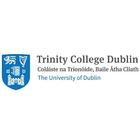
Master of Science in Electronic Information Engineering

Ireland

Masters Degree (Taught)

1 Year(s)

09 September 2024

6.5 IELTS
About the course
The M.Sc. in Electronic and Information Engineering course is designed for individuals who have a strong academic background in electronic and electrical engineering, computer engineering, or related fields, and who wish to specialise and advance their knowledge in electronic and information engineering.
The course is designed for individuals who are interested in pursuing a career in areas such as telecommunications, wireless communications, data communications, computer networks, software engineering, and signal processing. It is also suitable for individuals who are already working in the industry and wish to enhance their skills and knowledge to progress in their career or change their career path.
This M.Sc. course can be taken as either over one year as a full-time course or across two to three years part time and consists of taught modules worth 60 ECTS and a project worth 30 ECTS. A specialism in Computational Engineering is available for students selecting at least 15 ECTS from the Computational Engineering strand. M.Sc. candidates complete a substantial project and submit a report which accounts for 30 ECTS.
In addition to direct entry to the M.Sc., parallel Postgraduate Certificate (30 ECTS) and Postgraduate Diploma (60 ECTS) entry routes are available for direct separate application. For students who successfully complete the postgraduate certificate and postgraduate diploma, there is an option to rescind these awards and apply to complete an M.Sc. Part-time students may follow the staged award path over three years of study with a possible gap of up to one year in between.
- Scholarships - View all scholarships
Start dates and prices
How to apply
Entry requirements for Trinity College Dublin
Admission is normally restricted to graduates who have achieved an upper second class honours degree (2.1), or better, in engineering, science, computing, statistics, mathematics or a related discipline. Well-qualified candidates or industry professionals from other numerate disciplines who have sufficient knowledge of computational aspects of engineering and science, may also be considered for admissions purposes subject to the decision of the Dean of Graduate Studies. .
IELTS: Grade 6.5 overall
TOEFL: 88 internet-based, 570 paper-based, 230 computer-based
University of Cambridge:
Proficiency Certificate, Grade C or better (CEFR Level C1 or C2)
Advanced Certificate, Grade C or better (CEFR Level C1 or C2)
Pearson Test of English (Academic) - PTE Academic: a minimum score of 63 to be eligible (with no section score below 59)
English language requirements
TOEFL Internet based overall score: 88.0
Application deadline:
This date isn’t available – speak to an IDP counsellor to get detailed information.
Further information
- Career outcomes
-
If you aren’t eligible for the above entry requirements, you might want to explore pathway options at Trinity College Dublin. If you want to find out more, please speak to our counsellors.
Pathway options to study at this institution
Reviews and rankings
-
134th / 1250THE World ranking
What our students think
We’ve haven’t received any reviews for this institution yet.





Let’s get started
Sign up or login in with one click
View your shortlist or close this box to continue researching